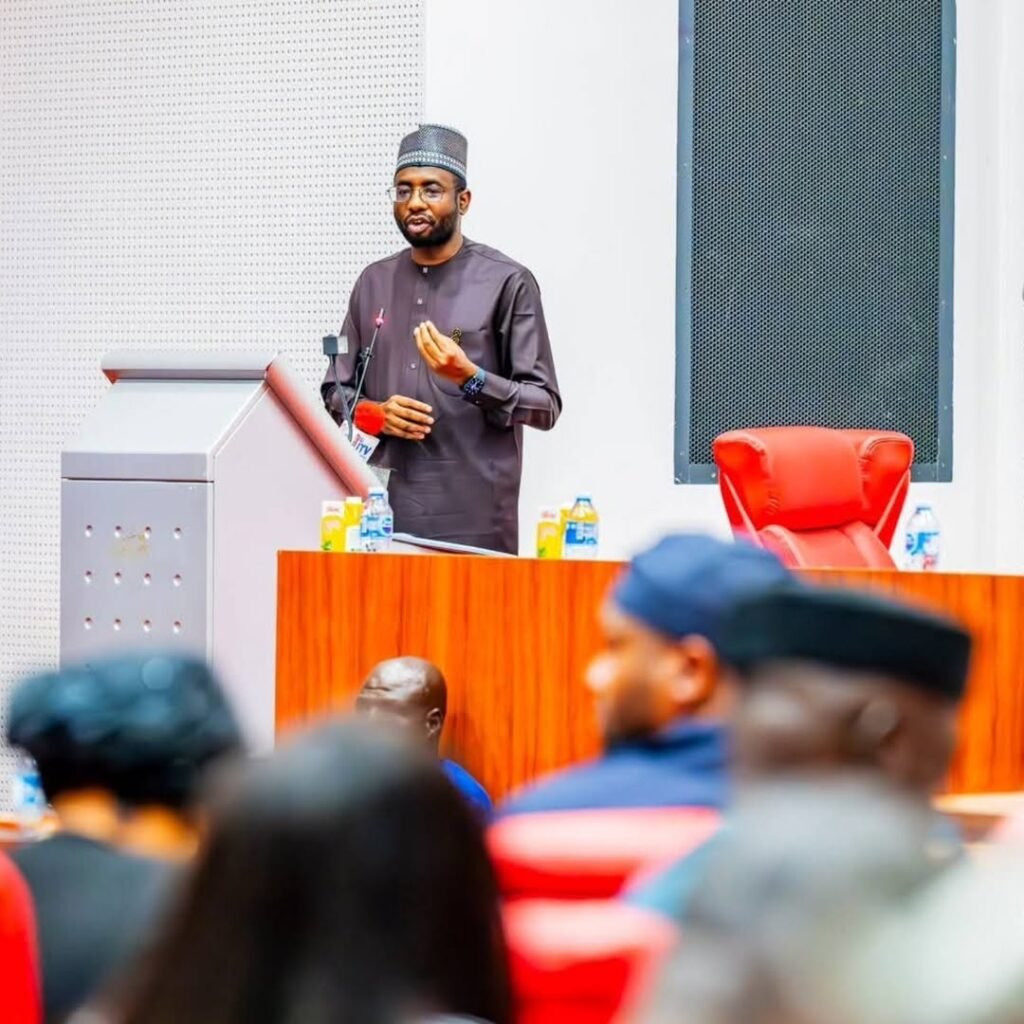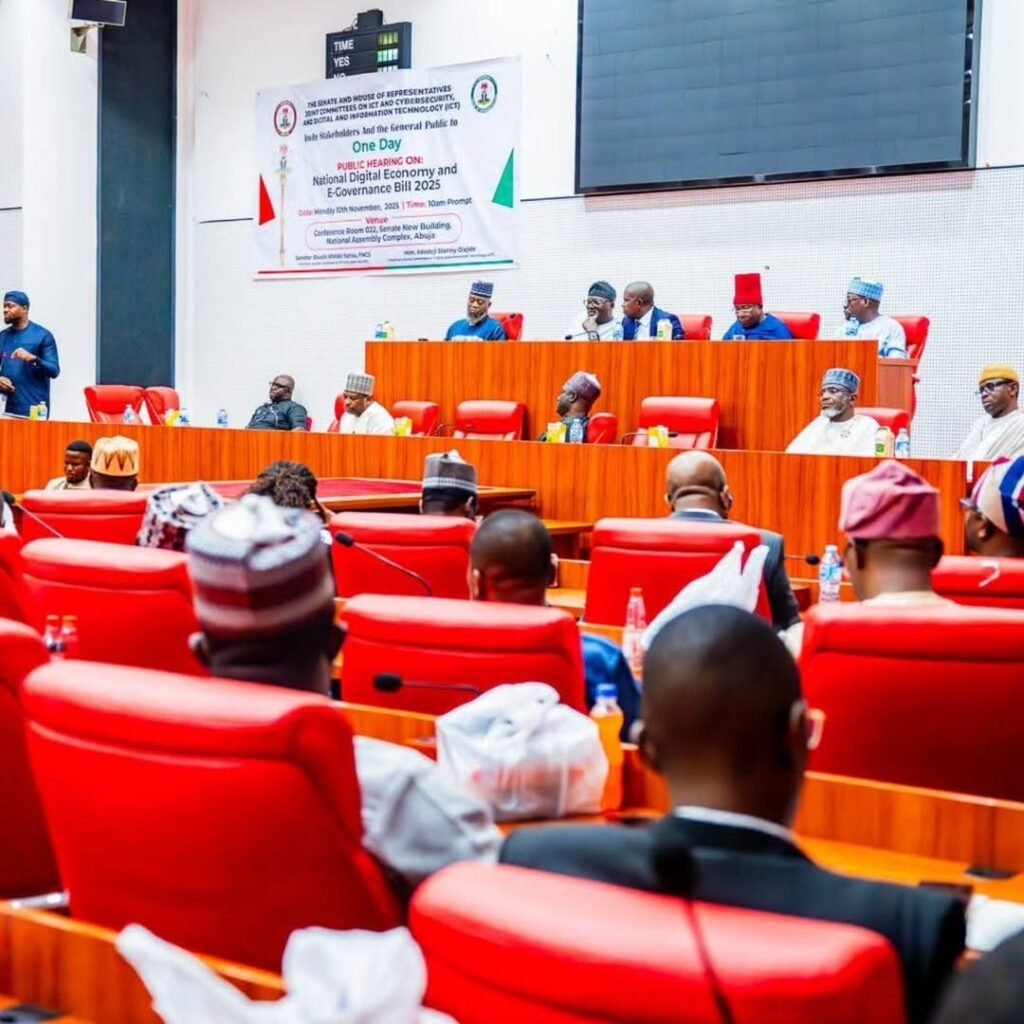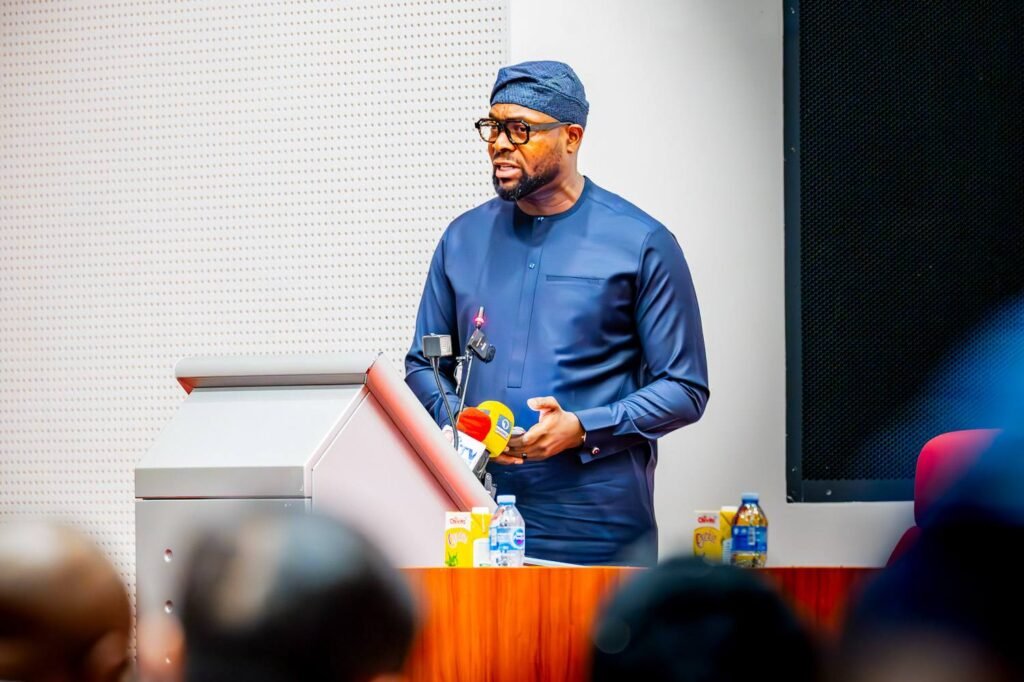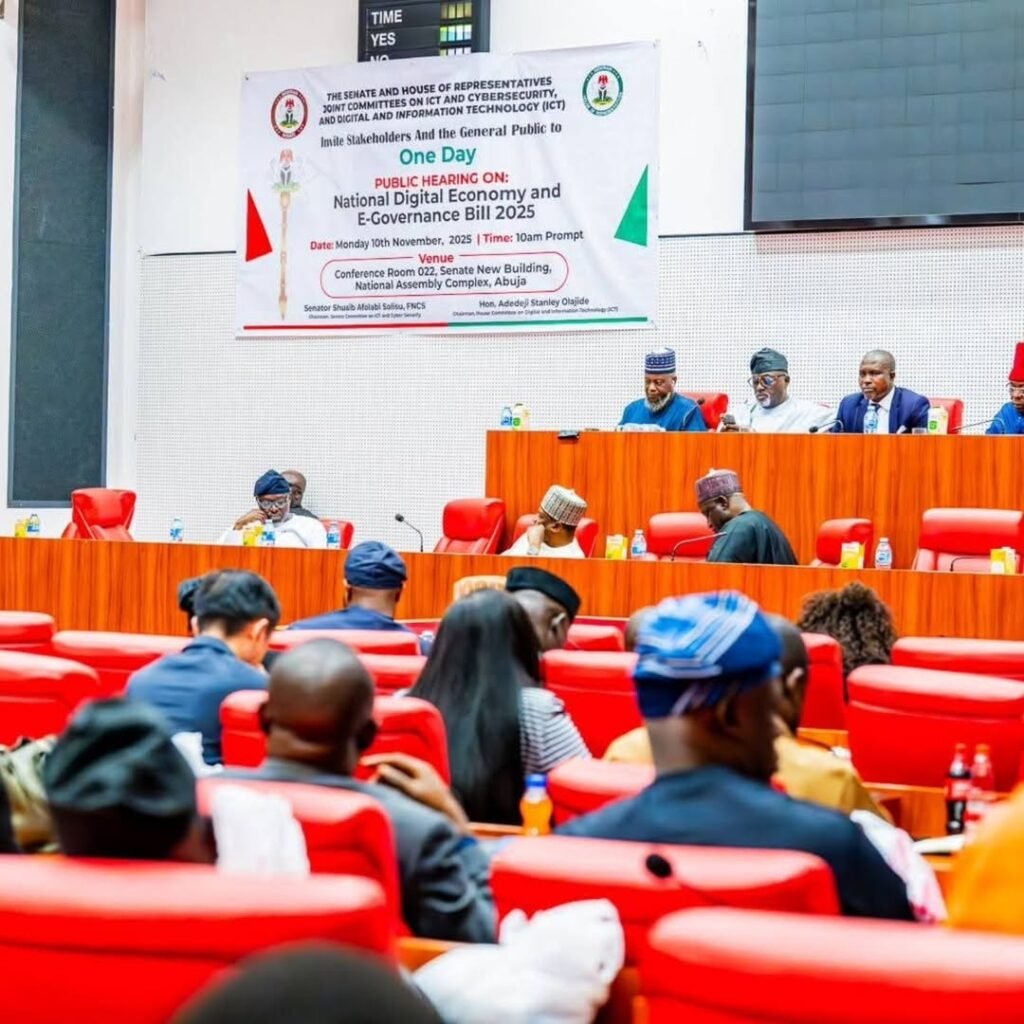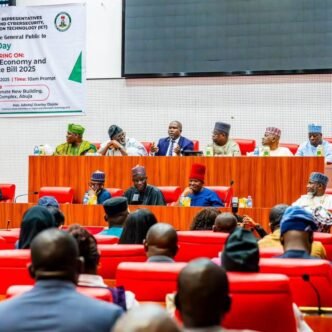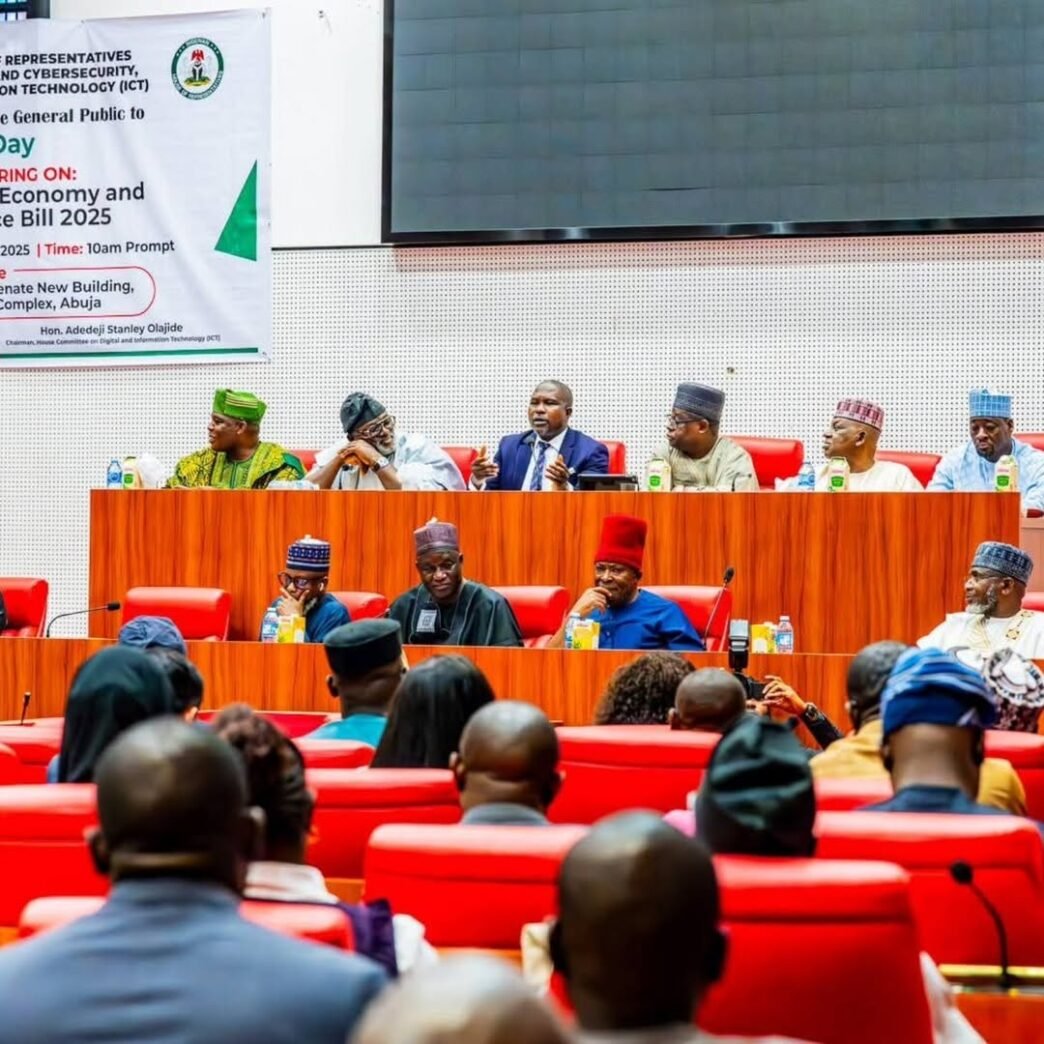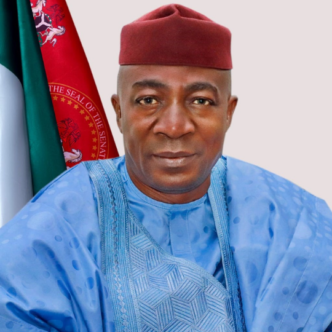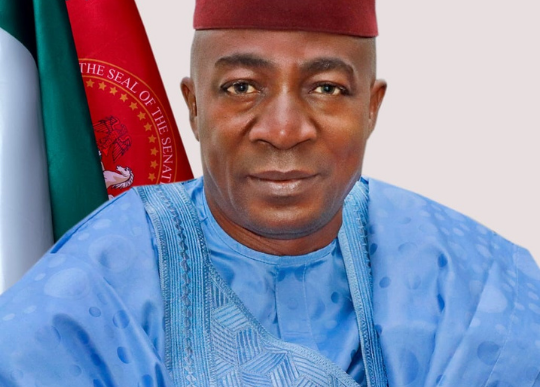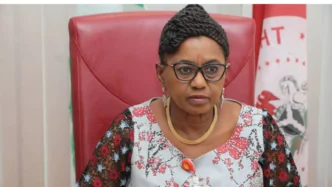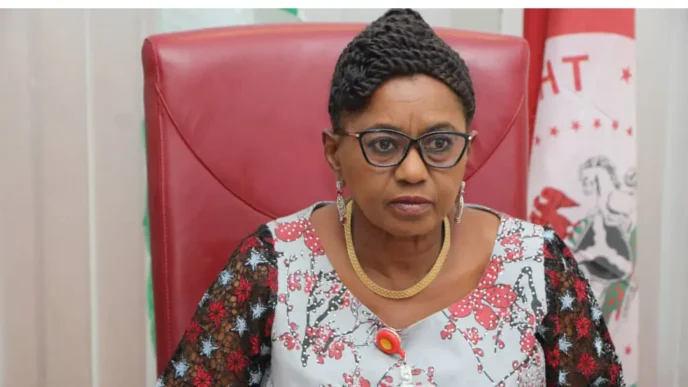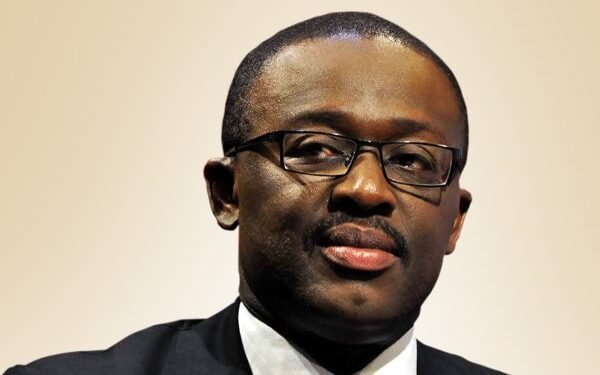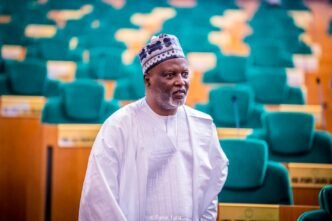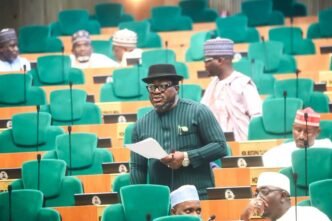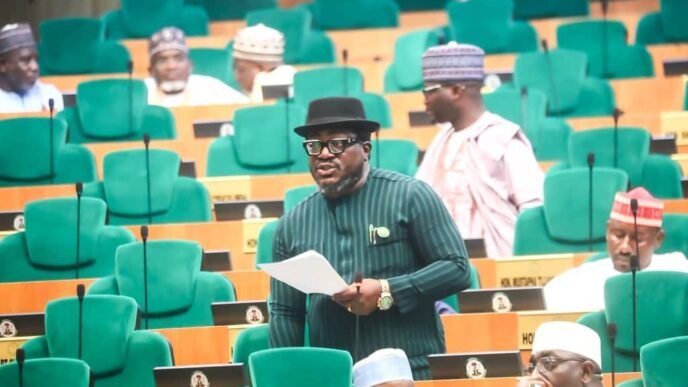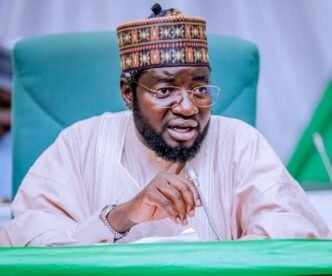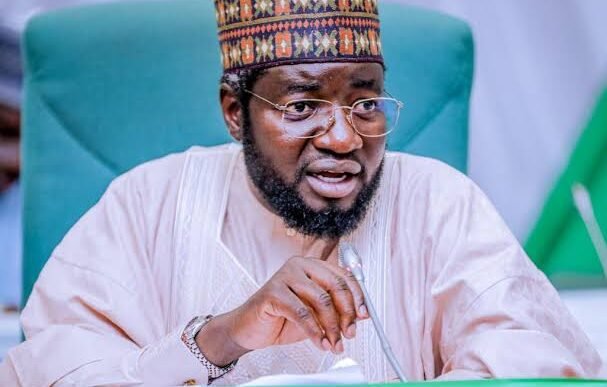Monday, November 10, 2025 | The National Assembly confirmed that Nigeria is set to introduce the continent’s first dedicated legal framework for digital economy and e-governance. The National Digital Economy and e-Governance Bill 2025, which is due to be transmitted to President Bola Tinubu for assent this week, was jointly drafted by the Senate and House of Representatives committees on ICT and Cybersecurity and Digital and Information Technology.
The bill was discussed at a one-day public hearing in Abuja, where the Chairmen of the joint committee, Senator Shuaib Afolabi Salisu and Hon. Adedeji Stanley Olajide, confirmed Senate and House plans to pass the bill for third reading and harmonisation within the week.
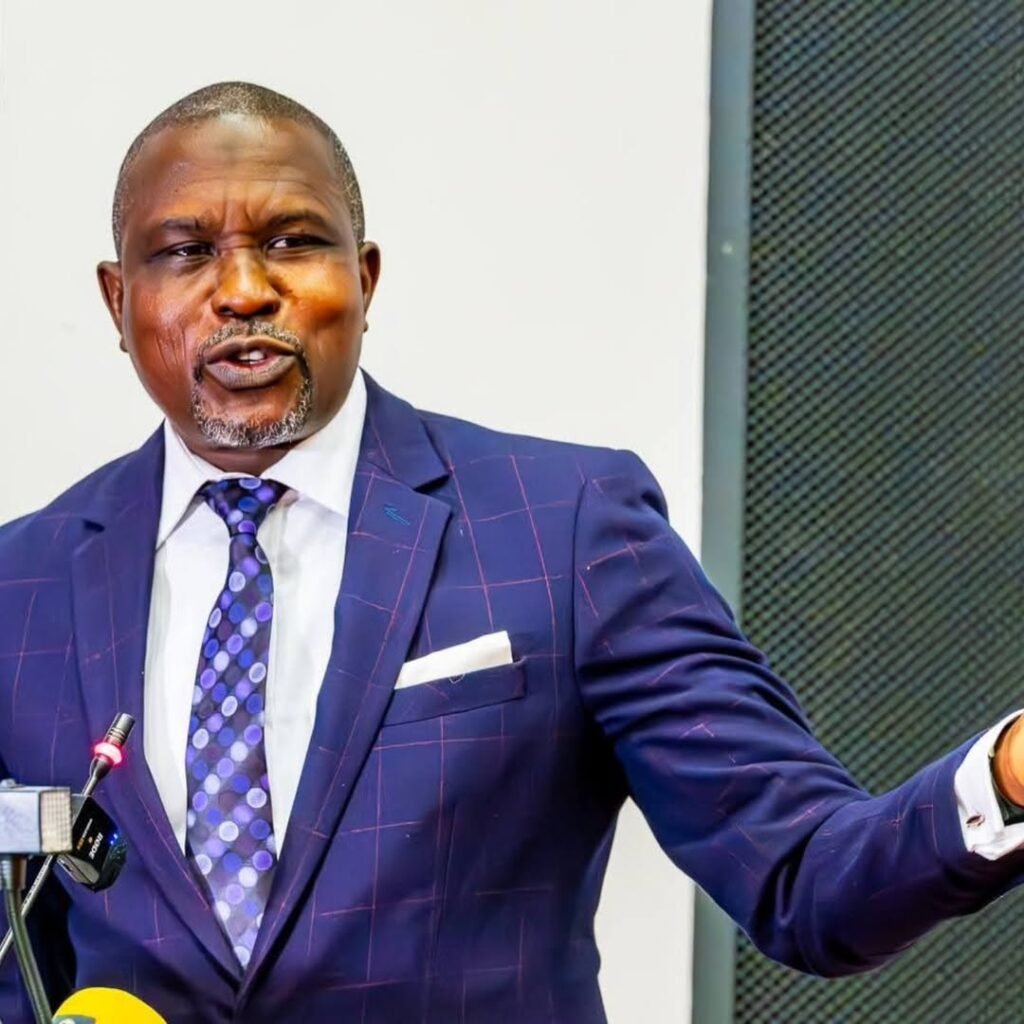
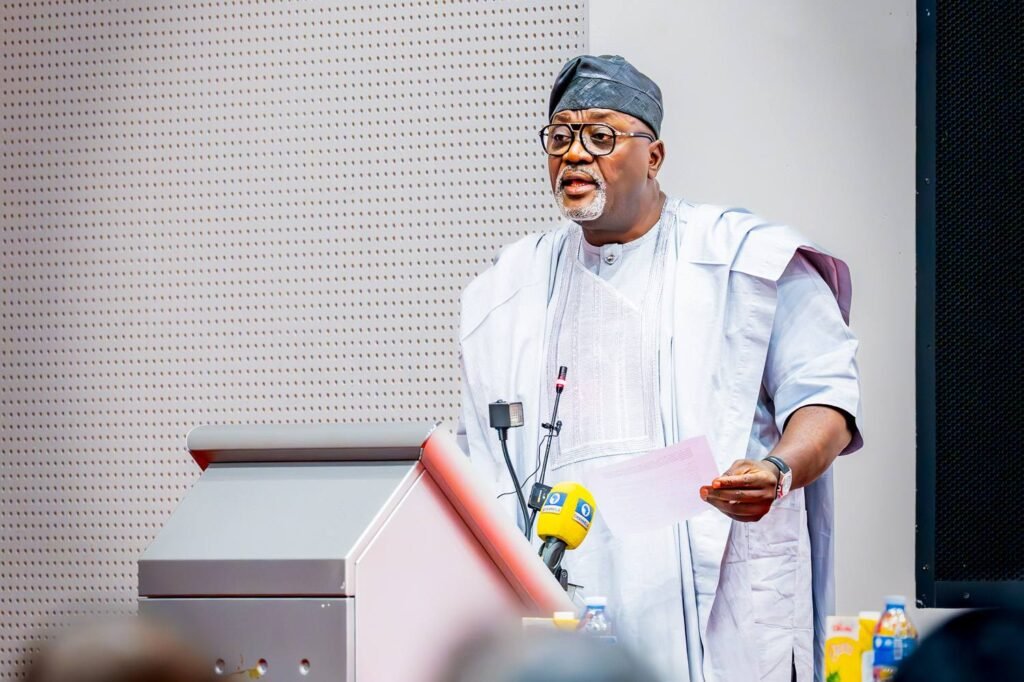
Speaker of the House of Representatives, Rt. Hon. Abbas Tajudeen, PhD, GCON represented by Hon. Isiaq Abiodun Akinlade, emphasised that digital transformation has become a national necessity central to Nigeria’s economic competitiveness, accountability, and national security. The Speaker noted that the legislation will redefine how government works and how citizens access services, creating a smarter, more transparent Nigeria built on technology and accountability.
“It is a vision for a new way of governance; one that is efficient, transparent, and centered on citizens,” he stated. He further explained that the Bill provides a solid legal framework for digital governance, data protection, cybersecurity, and inclusive access to technology, ensuring that no Nigerian, whether urban or rural, is left behind in the nation’s digital future.
Restructuring Nigeria’s Fragmented Data Systems
The move comes at a time when the country continues to grapple with slow adoption of digital public services, fragmented data systems among Ministries, Departments, and Agencies, weak ICT regulatory coordination, and infrastructural gaps that have left over 20 million Nigerians unconnected.
Despite rapid growth in the fintech and telecom sectors, government services in many areas still rely on paper-based processes, manual verification systems, and in-person interactions, contributing to inefficiencies, revenue leakages, and corruption vulnerabilities.
The Minister of Communications, Innovation and Digital Economy, Dr. Bosun Tijani, who addressed stakeholders at the hearing, disclosed that President Tinubu is already positioned to approve the bill once transmitted.
“This bill is being awaited by President Bola Tinubu for assent this week, being one of the catalysts for the actualisation of the projected $1trillion economy,” Tijani said.
He noted that the legislation represents a major step in consolidating Nigeria’s leadership in Africa’s tech landscape.
This sector, which once contributed about 16 percent to our GDP, is now tracking at 19 percent. Under the President’s leadership, we are targeting a $1 trillion economy with the digital economy contributing 21 percent to GDP by 2027. This Bill will unlock the private sector’s potential to achieve that goal.
-Dr. Bosun Tijani
To close connectivity gaps and expand digital access, Tijani disclosed that the Federal Government is deploying “90,000 kilometers of fiber-optic network” across the federation and “nearly 4,000 new communication towers” in underserved areas.
Key Highlights of the Bill
- The proposed legislation establishes a unified framework for Nigeria’s digital economy, e-governance, and cybersecurity, fostering innovation and secure digital operations across all sectors.
- It clarifies regulations for electronic transactions, requires the digitisation of government operations, and introduces a national system for artificial intelligence integration.
- The bill also mandates the creation of a unified data exchange system to address the fragmentation of government databases.
- By streamlining governance processes and enhancing transparency, the legislation aims to boost investor confidence and position Nigeria as a leader in digital governance in Africa.
In his remarks, Sen. Salisu described the bill as groundbreaking.
This is not just another piece of legislation, but a blueprint for our collective digital future, designed to create opportunities for our youth, secure our cyberspace, and make governance more efficient and transparent.
-Sen. Shuaib Salisu
Stakeholders present – including the Director General of NITDA, Kashifu Inuwa Abdullahi, and representatives from National Identity Management Commission (NIMC), Nigerian Communications Commission (NCC), Galaxy Backbone, and the Office of the Head of the Civil Service of the Federation – fully endorsed the legislation.
